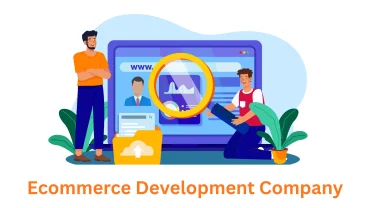Java’s staying power in mobile app development is undeniable. Its robustness, versatility, and extensive community support make it a top choice for building high-performance, secure apps for both Android and beyond. In this post, we’ll dive into the latest trends and technologies that are shaping the landscape of Java mobile app development.
1. The Rise of Kotlin
While Java remains strong, Kotlin, a modern programming language fully interoperable with Java, is gaining rapid popularity. Kotlin offers cleaner syntax, enhanced features, and improved developer productivity.
- Key Benefits: Null safety, concise code, coroutines for asynchronous programming, and seamless integration with existing Java projects.
2. Cross-Platform Dominance with Flutter
Flutter, Google’s UI toolkit, has revolutionized cross-platform development. Its ability to create beautiful, native-like interfaces from a single codebase is a game-changer for Java developers.
- Why Flutter? Hot reload for rapid development, expressive UI elements, and access to platform-specific features through Java channels.
3. AI and Machine Learning Integration
The integration of AI and machine learning (ML) capabilities is transforming mobile apps. Java developers are leveraging libraries like TensorFlow Lite and ML Kit to add features like image recognition, natural language processing, and predictive analytics.
- Business Impact: Personalized user experiences, intelligent recommendations, and advanced automation.
4. Jetpack Compose: A New Era of UI
Jetpack Compose, a modern declarative UI toolkit for Android, is poised to revolutionize how Java developers build interfaces. It offers a more intuitive and efficient way to create dynamic, interactive layouts.
- Advantages: Reduced boilerplate code, easier state management, and enhanced UI flexibility.
5. Enhanced Security Measures
Security remains paramount. Java developers are increasingly employing techniques like encryption, secure authentication (biometrics, two-factor), and code obfuscation to protect user data.
- Focus: Mitigating risks of data breaches, unauthorized access, and vulnerabilities.
6. The Power of Cloud Computing
Cloud platforms like AWS, Azure, and Google Cloud Platform offer Java developers a wealth of resources for scalable app backends, data storage, and serverless functions.
- Benefits: Cost-efficiency, global reach, and the ability to focus on app logic rather than infrastructure management.
7. Embracing Microservices
Microservices architecture, where an app is broken down into smaller, independent components, is gaining traction. This approach enhances flexibility, scalability, and maintainability.
- Java’s Role: Spring Boot framework simplifies the creation and management of microservices.
8. Beyond Android: Java for Wearables and IoT
Java’s reach extends beyond smartphones. It’s a key player in developing apps for wearables (smartwatches, fitness trackers) and Internet of Things (IoT) devices.
- Opportunities: Building connected experiences that span multiple devices.
Partnering with Associative: Your Java Mobile App Development Experts
If you’re looking to harness the power of these technologies and build cutting-edge Java mobile apps, Associative is your ideal partner. We specialize in:
- Website Development
- E-commerce Development
- Search Engine Optimization (SEO)
- Digital Marketing
- Android and iOS App Development
- Blockchain Development
- Cryptocurrency Wallet Development
- Software Development
- Web3 Development
- Game Development
- SEO Service
- Web App Development
- Ecommerce Website Development
- iOS App Development Service
- WordPress Development
Let us transform your app ideas into reality. Contact us today!
To learn more, consider reading other articles, blogs, and stories in this area.
Top Tier Java Mobile App Development
Expert Java Mobile App Development Services
The Ultimate Guide to Java Mobile App Development Tools & Resources
Java Mobile App Development: The Powerhouse Behind Robust Mobile Experiences
Mastering Java Mobile App Development: Your Roadmap to a Thriving Career in Software



Comment (0)